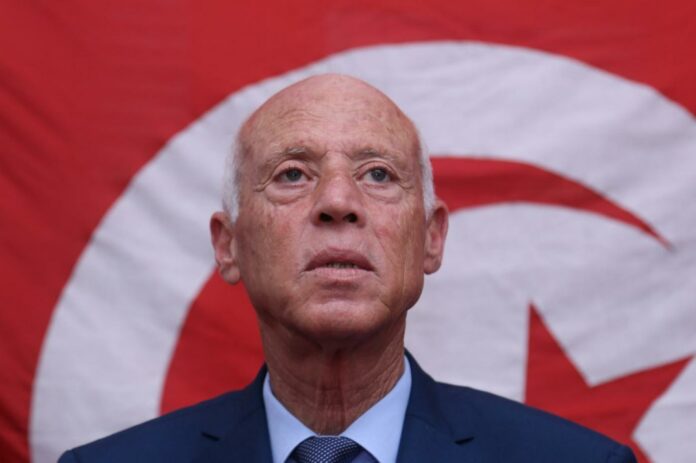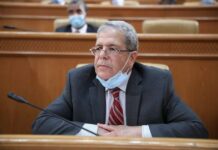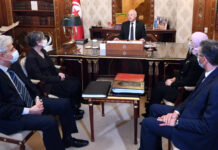Tunisia remains in limbo more than a week after President Kais Saied fired the prime minister, froze parliament and took on executive powers. Some citizens worried about what comes next, and when it will happen, as pressure for decisions mounts;that’s how Francesca Ebel ,a journalist in the Washington Post , began her article.
According to the same source ,Accountant Zied Amar, 36, was cautiously optimistic.
“I mostly think that Kais Saied’s decision was right, even if we take into consideration the accusations,” he said, sitting on La Marsa beach with his wife and baby on a scorching weekend. “But we need a decision that will let the people feel less anxious, let them feel hope — hope in one person who will defend their rights,” he added. “The citizens are afraid that someone could steal their freedom.”
Last week, he appointed a new interior minister, in charge of security, the first replacement among the dozens of top officials he had fired. He also pledged to fight corruption and tackle crooked businessmen, requested that traders, wholesalers and pharmacies lower prices, and on Saturday asked banks to lower interest rates. And he banned gatherings of more than three people and set a curfew from 10 p.m. to 5 a.m.
The article ,also,evoked the measures taken by Kais Saied ;Last week, he appointed a new interior minister, in charge of security, the first replacement among the dozens of top officials he had fired. He also pledged to fight corruption and tackle crooked businessmen, requested that traders, wholesalers and pharmacies lower prices, and on Saturday asked banks to lower interest rates. And he banned gatherings of more than three people and set a curfew from 10 p.m. to 5 a.m.
But not everyone was so certain. Wejden Ben Alaya, a 26-year-old sales executive sitting at one beach bar, said to the Washington Post , that she felt a lot of the support for Saied was “emotional.”
“Because of the country’s social dilemma and economic problems … people were fed up. Kais Saied presented himself as a saviour and it makes sense that people would align with that emotionally,” she said.
Ben Alaya said she voted for Saied, an unknown with no political experience, in the 2019 presidential elections because he seemed the best among bad options. Now, “I’m not comfortable with these measures. I don’t know where this will lead, given that he is not backed by a clear system or a clear entity such as a party or a movement. I think it’s concerning.”
Recall that,the U.S. National Security Advisor Jake Sullivan spoke Saturday with the Tunisian leader, conveying President Joe Biden’s strong support for the people and for Tunisian democracy, National Security Council spokesperson Emily Horne said in a White House press release.











